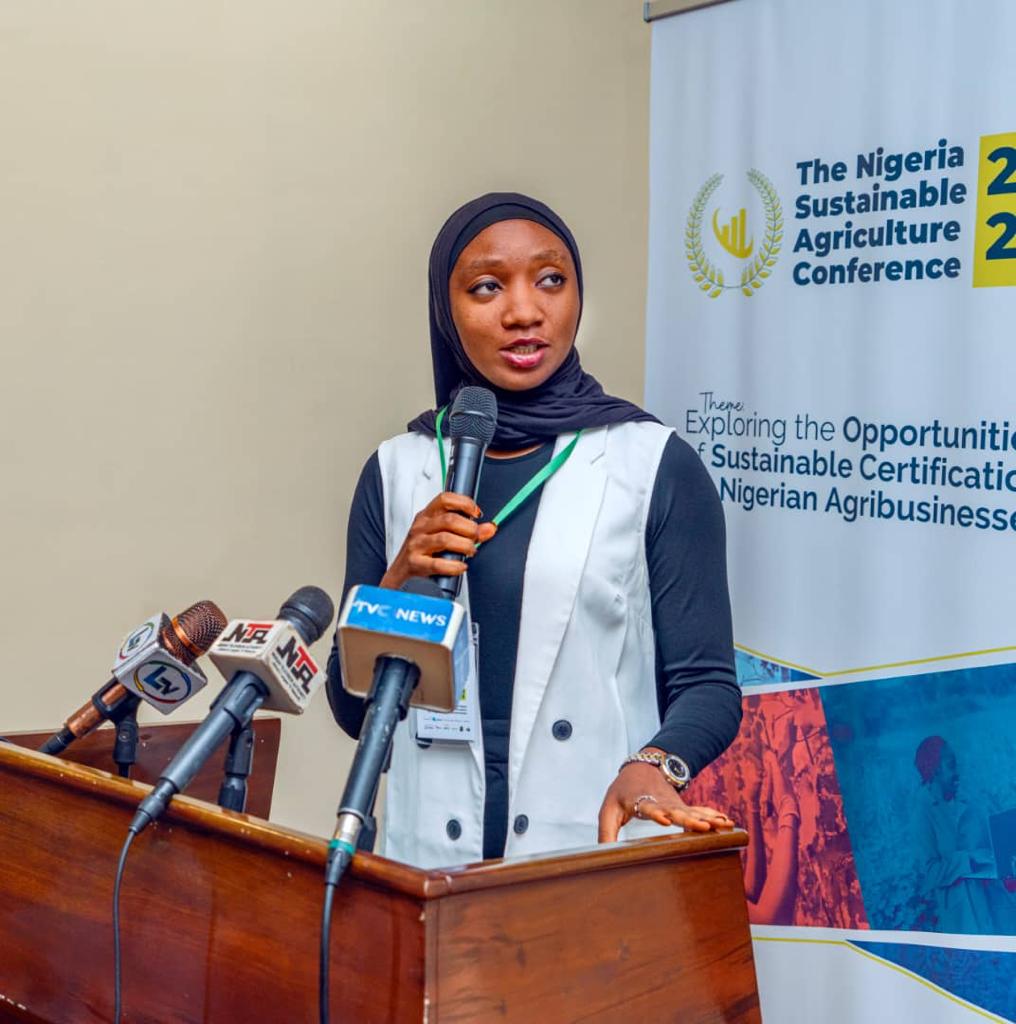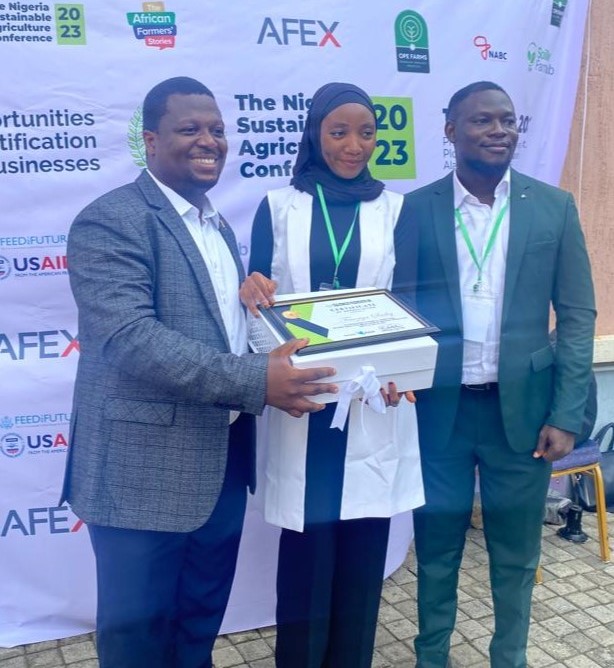Future-Proofing Agribusiness Value Chain: Insights from the Nigeria Agriculture Conference
At the recent Nigeria Sustainable Agriculture Conference held on the 19th of July, the NABC’s Project Officer based in Nigeria, Ms. Fauziyya Sadiq, shared valuable insights during her presentation on "Future Proofing Agribusiness Value-Chains through SDGs."
In the dynamic landscape of global challenges like climate change, population growth, and resource depletion, the importance of sustainable practices in agribusiness cannot be overstated. Nigeria, with its rich agricultural heritage, holds a unique position in the quest for food security, environmental preservation, and economic prosperity. Embracing this vision, aligning agribusiness value-chains with the United Nations’ Sustainable Development Goals (SDGs) emerges as a powerful strategy for future-proofing the sector.
At the recent Nigeria Sustainable Agriculture Conference held on the 19th of July, the NABC’s Project Officer based in Nigeria, Ms. Fauziyya Sadiq, shared valuable insights during her presentation on “Future Proofing Agribusiness Value-Chains through SDGs.” This conference brought together stakeholders from various sectors, emphasising the need to address pressing challenges faced by the Nigerian agricultural sector. The key areas of focus included sustainable production, farms and produce certification, and compliance with global market requirements.
Understanding the SDGs
The Sustainable Development Goals (SDGs) were adopted by all United Nations Member States in 2015 as a universal call to action to end poverty, protect the planet, and ensure prosperity for all. Comprising 17 interconnected goals, the SDGs address a range of issues, including poverty, hunger, health, education, gender equality, clean water, and climate action. Goal 2, “Zero Hunger,” and Goal 12, “Responsible Consumption and Production,” are especially pertinent to the agribusiness sector.
Addressing Key Challenges in Nigerian Agribusiness
Nigeria’s agribusiness faces several challenges that hinder its sustainability and growth. These challenges, as outlined by Ms. Sadiq, include limited access to innovation and technology, inadequate financial support for sustainable practices, the impact of climate change and market forces, and deficiencies in the transport system. By embracing the SDGs, stakeholders in the agribusiness value-chain can develop targeted strategies to overcome these obstacles and create a more resilient sector.
Mitigating Risks and Enhancing Efficiency
The SDGs offer a roadmap for future-proofing agribusiness value-chains by identifying areas that require immediate attention and intervention. By incorporating sustainable practices, such as precision farming techniques and water management systems, agribusinesses can optimise productivity and minimise resource wastage. Reducing inefficiencies not only boosts profitability but also ensures a reliable and consistent food supply, contributing to food security in the long term.

Unlocking New Growth Opportunities
Aligning agribusiness with the SDGs goes beyond mitigating risks; it unlocks new growth opportunities. As global demand for sustainable and ethically produced food rises, businesses adhering to sustainable practices gain a competitive advantage. Ethical sourcing, environmental responsibility, and social impact are becoming increasingly important factors for consumers and investors alike. By positioning themselves as sustainable champions, Nigerian agribusinesses can tap into a growing market of socially conscious consumers and attract responsible investors.
Promoting Social Responsibility
The SDGs emphasise the importance of social responsibility, urging businesses to invest in their communities and the welfare of their employees. In the agribusiness sector, this translates to fair labour practices, gender equality, and responsible land management. By adhering to these principles, agribusinesses contribute to social stability and economic growth, fostering a positive reputation that resonates with consumers and investors both locally and globally.
Collaborative Multistakeholder Approach
Future-proofing agribusiness value-chains through the SDGs necessitates a collaborative, multistakeholder approach. As emphasised by Ms. Sadiq during her presentation, farmers, policymakers, researchers, and consumers must come together to share knowledge, best practices, and resources. This collective effort fosters innovation and facilitates the implementation of sustainable initiatives on a broader scale, creating a ripple effect that positively impacts the entire sector.

How NABC is supporting the Agribusiness Value Chain
From 2019 until 2022, the NABC, together with Dutch private sector partners, facilitated an impact cluster, Seeds for Change (S4C), which aimed to develop the vegetable sector in Kano, Nigeria. In addition, the impact cluster improved the livelihood of small and medium scale farmers by providing high quality seeds and training them on Good Agricultural Practices. You can learn more about the results of S4C by clicking here.
Conclusion
Nigeria’s agribusiness holds immense potential to drive sustainable development and economic growth in the country. The Nigeria Sustainable Agriculture Conference served as a rallying point for the entire agricultural sector to recognise the significance of sustainable practices in shaping a better future. By embracing the SDGs as a guiding framework, the agribusiness value chain can future-proof its operations, overcome challenges, and seize new opportunities. As Nigeria marches towards a greener and more prosperous future, sustainable agriculture stands as the beacon of hope, offering a path towards a resilient, productive, and sustainable food system for generations to come.


